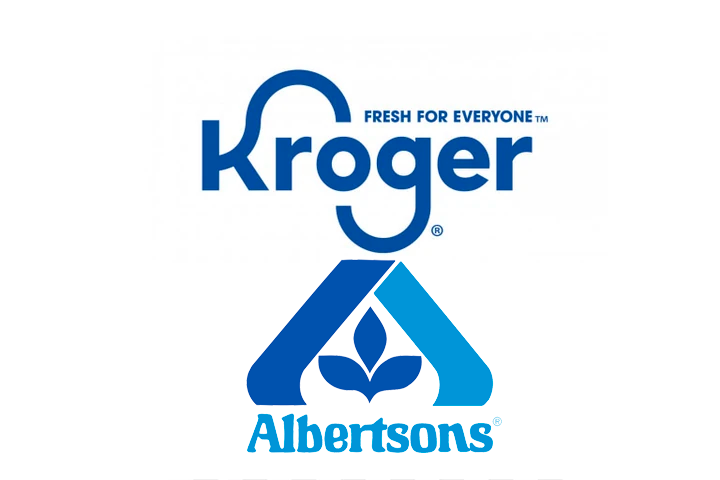
Kroger and Albertsons, two of the biggest grocers in the country, have been working on a merger deal since 2022.
Now, the Federal Trade Commission (FTC) and a group of attorneys general are suing to block the merger, in which Kroger would acquire Albertsons for $24.6 billion. According to the FTC, merging the two grocers would eliminate competition for consumers, resulting in higher grocery prices, and leading to poor working conditions for employees.
With both grocery chains hosting stores under their supermarket banners, the deal would give the two retailers a combined 5,000 locations across the United States.
The fact that inflation has hammered grocery shoppers' pocketbooks for the last two years is the exclamation point on the FTC action.
“This supermarket mega-merger comes as American consumers have seen the cost of groceries rise steadily over the past few years,” said Henry Liu, director of the FTC’s Bureau of Competition. “Kroger’s acquisition of Albertsons would lead to additional grocery price hikes for everyday goods, further exacerbating the financial strain consumers across the country face today.
“Essential grocery store workers would also suffer under this deal, facing the threat of their wages dwindling, benefits diminishing, and their working conditions deteriorating.”
Protecting a competitive marketplace
The FTC and attorneys general from Arizona, California, the District of Columbia, Illinois, Maryland, Nevada, New Mexico, Oregon, and Wyoming are primarily concerned with what this merger will do to the competition in the grocery marketplace.
They explained that with fewer places to buy groceries, there are two primary ways that consumers can suffer: higher grocery prices and lower grocery quality.
Currently, with both stores in operation, they work to maintain high quality standards to garner support from consumers. This includes everything from higher quality products, improved private-label offerings, a wide array of in-store services, flexible store and pharmacy hours, and curbside pickup services.
However, the FTC believes that without that direct competition, prices won’t need to stay within a reasonable range. On top of that, stores won’t be trying to win shoppers, so many of these extra services won’t be necessary anymore.
Concern for employees
The FTC also worries about the effect this will have on supermarket employees. Workers won’t have as many opportunities to secure higher wages, better benefits, or better working conditions.
The agency explained that employees at both chains are members of the United Food and Commercial Workers union, which works to promote better working conditions, better pay, and better benefits for employees at all supermarkets. However, without Kroger and Albertsons competing for employees, the union wouldn’t have as much influence on behalf of workers.
Kroger and Albertsons fight back
Despite the lawsuit, Kroger and Albertsons believe that teaming up will help them compete with the likes of Walmart and Amazon, while still providing low prices to shoppers.
“Contrary to the FTC’s statements, blocking Kroger’s merger with Albertsons Companies will harm the very people the FTC purports to serve: America’s consumers and workers,” Kroger said in a statement. “The FTC’s decision makes it more likely that America’s consumers will see higher food prices and fewer grocery stores at a time when communities across the country are already facing high inflation and food deserts. This decision only strengthens larger, non-unionized retailers like Walmart, Costco, and Amazon, by allowing them to further increase their overwhelming and growing dominance of the grocery industry.”
“Albertsons Cos.’ merger with Kroger will ensure our neighborhood supermarkets can better compete with these mega retailers, all while benefiting our customers, associates, and communities,” the company said in a statement. “We are disappointed that the FTC continues to use the same outdated view of the U.S. grocery industry it used 20 years ago, and we look forward to presenting our arguments in Court."
Photo Credit: Consumer Affairs News Department Images
Posted: 2024-02-27 23:42:50



















